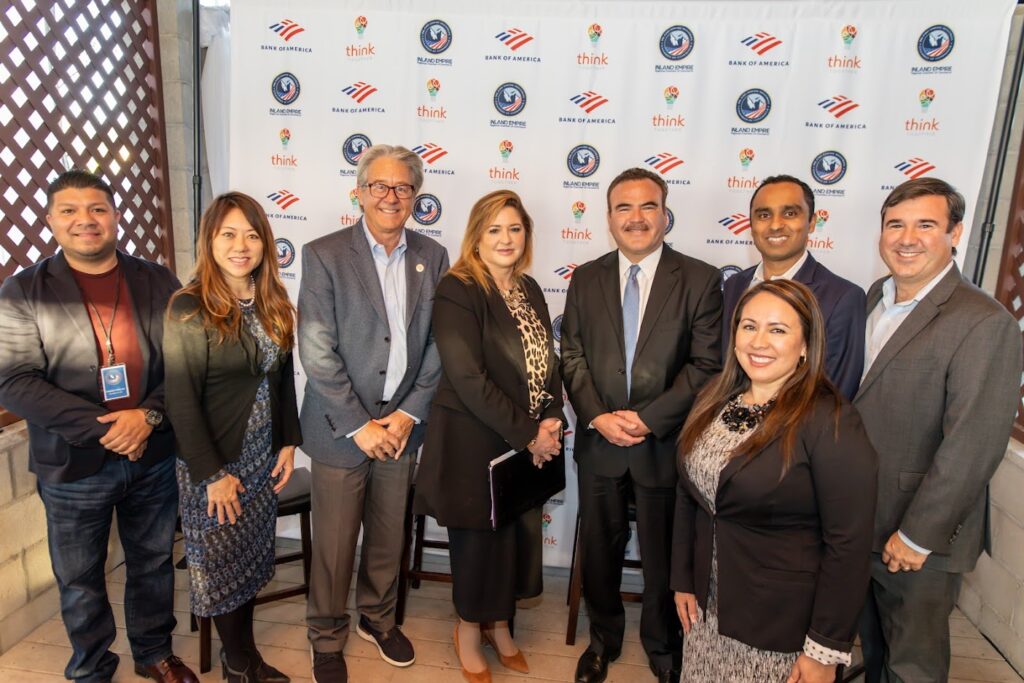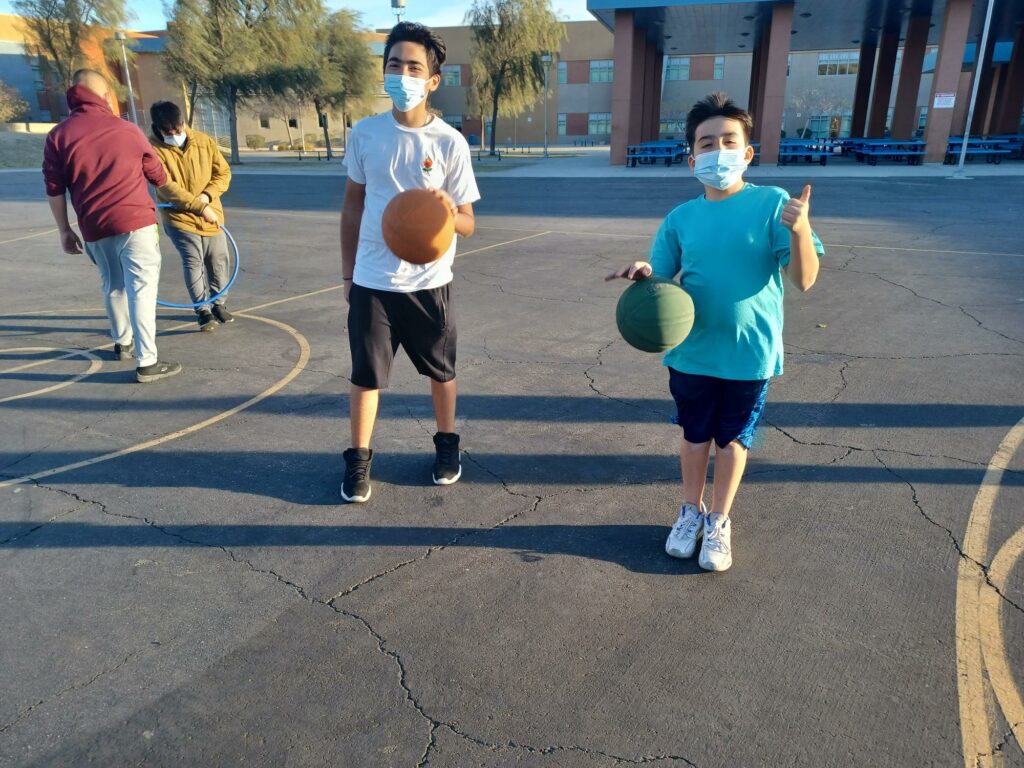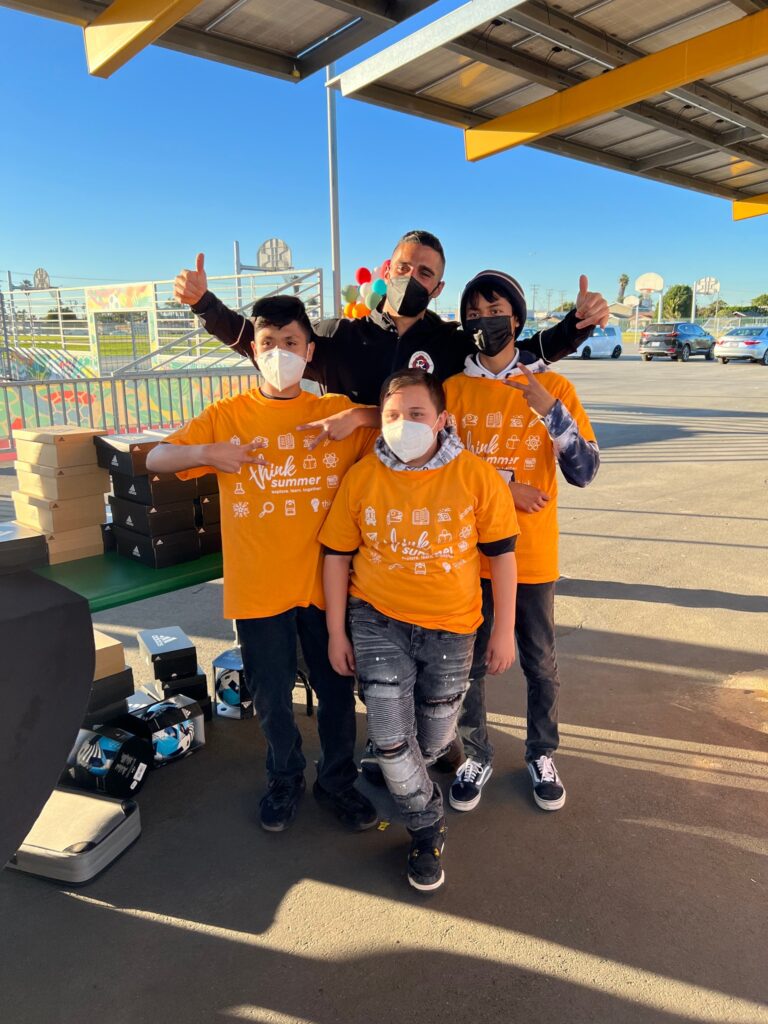In partnership with Think Together and the Inland Empire Regional Chamber of Commerce, the event gathered 200 education and business leaders to address the need to prepare students for college and career.

Rancho Cucamonga, Calif. (Mar. 14, 2022) Think Together, California’s leading nonprofit provider of afterschool, expanded learning and school improvement programs, in partnership with the Inland Empire Regional Chamber of Commerce, hosted the 2022 Inland Empire Education and Workforce Summit at the Historic Ioamosa on March 9, bringing together nearly 200 leaders in the public, education and nonprofit sectors.
The event aimed to create cross-collaboration and constructive solutions to ensure students impacted by COVID-19 are equipped with the necessary academic, technical, and soft skills needed to succeed in today’s economy.
The summit opened with Bansree Parikh, Bank of America president for the Inland Empire who shared a powerful testimonial with the audience about her own personal journey from student to workforce leader.
“Mastery of a trade or job skill can have as significant an impact on lifetime earnings as a college degree, with millions of underskilled workers having the potential to increase their income by as much as 70% if they receive skill or education accreditation,” said Parikh. “This is why Bank of America – not only as a major employer ourselves but as a community leader – heavily invests into workforce education programs and summits like this one that help create pathways to careers in the region.”
The event’s first keynote speaker was California State Treasurer Fiona Ma, who spoke on the current affairs of workforce readiness in California and what the state is doing to support college and career readiness from early learning to high school.
“From STEM careers created to address climate change, to education jobs leading the next generation of trailblazers, the state applauds the work of public and private leaders across the state collaborating to create 21st century jobs for our young people,” said Treasurer Ma.
Keynote speaker Dr. Angelo Farooq, Chairman of the California Workforce Development Board, followed providing his unique perspective on how solutions can be found when business and government work collaboratively. “Students today need the social emotional intelligence and intrinsic support from our business leaders to guide them on the road to success. The pandemic has contracted opportunities for young people to get the hands-on experience they need to enter the workforce and it’s up to us to give those back to them.”
Bank of America’s Inland Empire Market Executive Cathy Paredes led the panel to showcase regional perspectives on how the pandemic has changed the workforce landscape and what educators are doing to prepare students for today’s job market. Panelists included:
- Dr. Angelo Farooq, Chairman at California Workforce Development Board
- Ted Alejandre, San Bernardino County Superintendent of Schools
- Dr. Ruth Perez, Deputy Superintendent of Schools at Riverside County Office of Education
- Randy Barth, Founder and CEO of Think Together
“We are still learning the exact impact that the pandemic will have on this current generation of students and their futures,” said Randy Barth, founder and CEO of Think Together. “What we do know is we need to focus on supporting students academically, as well as supporting them emotionally and giving them the tools they will need in college, career and beyond in an ever-evolving job market.”
The 2022 Inland Empire Education and Workforce Summit was proudly sponsored by Bank of America with San Bernardino County, Small Business Majority, Clearworld and the Otis Academy as supporters of the event.
Those interested can watch the Inaugural Inland Empire Education and Workforce Readiness Summit on YouTube. Those looking to get involved with Think Together can visit: www.thinktogether.org/get-involved.
About Think Together
Think Together partners with schools and communities to pursue educational equity and excellence for all kids. As a nonprofit organization, Think Together innovates, implements and scales academic solutions that change the odds for hundreds of thousands of California students. Think Together’s program areas include early learning, afterschool, school support services and leadership development for teachers and school administrators. For more information, call (888) 485-THINK or visit www.thinktogether.org.
About the Inland Empire Regional Chamber of Commerce (IERCC)
The Inland Empire Regional Chamber of Commerce (IERCC) supports commerce and economic prosperity throughout Riverside & San Bernardino Counties. The IERCC provides a platform for business executives to engage, network, and conduct business with like-minded individuals from all over the Inland Empire region. Learn more about the IERCC visit www.iechamber.org.
Media Inquiries
Elena Bosch
(714) 824-8136
[email protected]




















